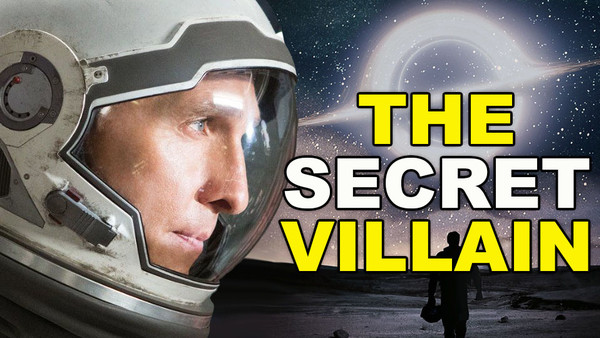Film Theory: The Evil Mastermind You Didn't Notice In Interstellar
It wasn't about saving humanity, it was about capitalism!

As far as the sci-fi genre goes, Interstellar is just about the perfect film. It's got everything from an awesome, gripping plot, fantastic visual effects, memorable dialogue, strong characters, and a healthy sprinkling of love ... although that bit about love being an interdimensional quantity went a bit over our heads.
The one thing the film can be said to be lacking in, is a villain.
Sure, Dr. Mann tries to mess things at one point, but he's much better defined as an emotionally unraveling space loony than an actual villain. Sure, you could argue that the plot doesn't need a villain, but what if there was one? One that was right in front of you all the while, only to pass completely unnoticed?
Of course, given that the villain isn't one that is explicitly portrayed as such in the film, we need to examine the setting, context, and facts presented to fully unravel the bad guy.
So let's get right into it...
6. Commercialism Is Dead... No One Buys Stuff They Don't Need Anymore

One of the most poignant lines from the film is "We didn't run out of TV screens, we ran out of food", an idea very much in line with the views of environment crusaders who warn against the dangers of overexploitation of resources that increasing commercialisation brings with it. In the film, society seems to have learned its lesson.
No one buys stuff anymore, neither do they buy into the idea of buying stuff they don't need. Everyone has realised what a bad idea endless greed was, and gone back to a simpler, minimalist lifestyle.
For a world that is set in the future, there is a conspicuous absence of modern gadgets and advertisements from the setting. It's a world where both technology and capitalism have peaked and then been discarded -- remember, there is mention in the film of sentient machines being used in the marines, and there are several examples of powerful pieces of technology that are no longer in use.
The rejection of such vast hordes of technology, as well as an entire way of life, makes you wonder what happened to all the guys who used to make millions from selling stuff to people before the commercial bubble burst? Have they given in to the new societal order, happy to be forced into an agricultural existence? Or are they just lying low, organising, and trying to come up with a plan to make money off people again?